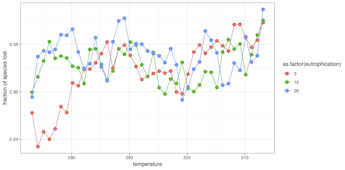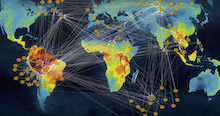About
I am a computational ecologist focusing on the development of ecological theory and the analysis of large datasets to gain a better understanding of community assembly and ecological patterns of species distributions and interactions in complex natural communities.
My main research focus is on the mechanisms behind the emergence of complexity in ecological networks and the development of theoretical models of community and network dynamics to better understand these mechanisms and the patterns they give rise to.



.png)

.png)
